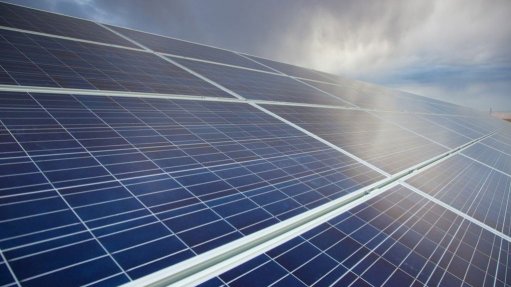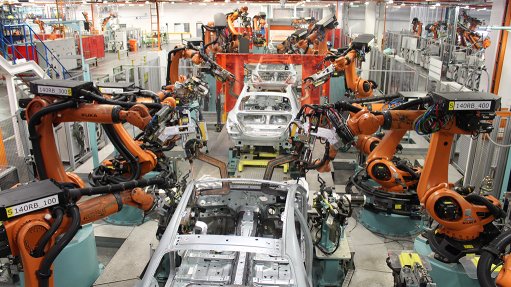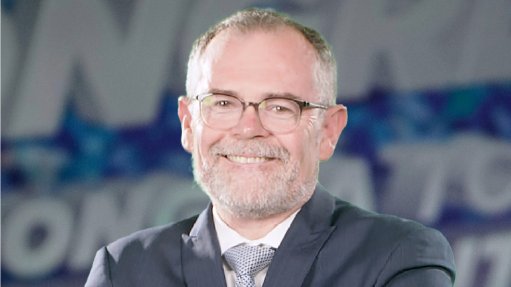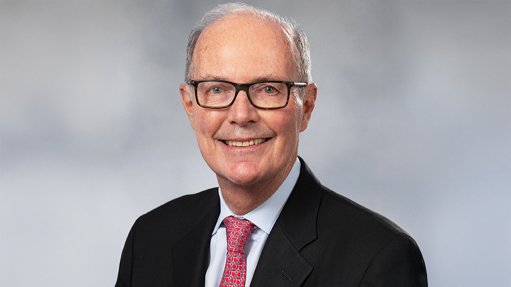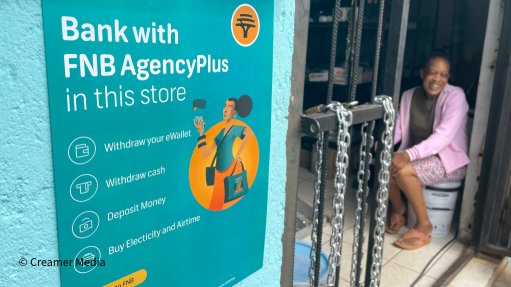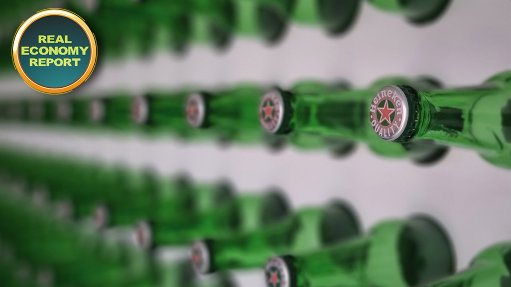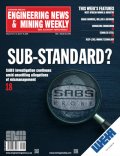AU’s G20 inclusion, South Africa’s 2025 presidency, present opportunities for the continent
With exogenous and endogenous shocks impacting on Africa countries to varying degrees over the years, and different regions showcasing different levels of macroeconomic resilience, the African Union (AU) must use its inclusion in the Group of 20 (G20) to help tackle pertinent issues for the continent, while South Africa must use its G20 presidency in 2025 in a similar vein.
This was highlighted by speakers in the South African Institute of International Affairs' (SAIIA's) ‘Macroeconomic Resilience – exploring Africa’s G20 Agenda’ conference, held on January 29.
Last year, the AU was made a permanent member of the G20.
South Africa will succeed Brazil as G20 president in 2025, with Brazil taking over from India this year.
The country’s initial thinking about its G20 presidency in 2025 would entail building on the achievements of the preceding India and Brazil presidencies, and continuing to focus on the needs of emerging markets and developing countries, while placing the continent at the forefront, speakers averred.
They added that the country’s presidency would also see it continue to focus on key legacy issues from previous presidencies, including food and energy security, inequality, addressing debt vulnerabilities, reforming multilateral development banks, and climate finance, among others.
The presidency must also aspire to seek an appropriate balance between financially sustainable development and climate change goals, as this would remain critical given that there was a lag in meeting the Sustainable Development Goals by 2030, speakers emphasised.
Consultations will be held with key stakeholders to refine the priorities of the presidency, as well as engagements with think tanks, civil society, and regional and international partners. Outcomes and discussions from the SAIIA event will also help inform this process.
It was highlighted that the country’s presidency should be viewed as “a milestone for the continent”, and it can use this opportunity to showcase what the region can offer while outlining what needs to be addressed.
Speakers acclaimed that the AU’s inclusion in G20 was an important step in the legitimacy of the entity, however, they warned of the considerable challenge of having to represent 54 countries with varying political and economic climates.
However, despite not being homogenous, one issue that the AU must push is a framework for solving high levels of debt, it was emphasised.
Also set to be tackled are challenges around climate change and the financing of mitigation and adaption measures, given that Africa as a whole contributes very little to emissions but is unfairly impacted on by the effects of climate change (bar South Africa, which is a considerable emitter).
AU Food Systems special envoy and SAIIA international advisory board head Dr Ibrahim Mayaki pointed out that the current global climate necessitates that Africa must act accordingly, with the return of violent conflicts both on the continent and globally.
He added that the prolonged trend of weakened multilateralism was not being stopped.
Therefore, Mayaki emphasised that Africa must think strategically, and perceive the AU’s inclusion in the G20 as its chance to be a critical actor to bring solutions to global problems, so that better resolutions could be framed to global issues of climate, conflict and migration, besides others.
He highlighted the need to promote Africa’s interests, including, mostly importantly, aiming to reinforce economic integration, with fragmentation a considerable impediment to growth.
Mayaki also called for promoting of reindustrialisation, and capitalising on agricultural opportunities – with this to be done at a regional level.
He also indicated the need to close the gap between the AU and the common African citizen, positing that the more the AU is perceived as an efficient institution, the better national institutions will behave, work and adapt. In case of the reverse, less national progress would be made, he said.
RESEARCH
The event included presentations of the team’s research on the main drivers of resilience and vulnerability in Africa, new indices developed to inform policy responses that are socioeconomically inclusive and climate-friendly, as well as the lessons learnt from 12 country case studies on the impact and responses of Africa to key shocks from 2000 to 2022.
Zeroing in on South Africa, CoMPRA principal investigating officer Conrad Van Gass pointed out that the country’s trade profile was heavily concentrated on manufacturing exports, which did not seem to be having much impact on its growth performance.
Moreover, the country’s growth has been decelerating, with this being a long-term trend, and corresponding to declining governance.
He also presented an assessment on building the continent’s macroeconomic resilience.
From this, recommendations to strengthen balanced trade and investment include the AU progressively pursuing a customs and monetary union; while trade diversification through the African Continental Free Trade Area Agreement's promotion of intra-regional trade and regional value chain intensification could smooth and partly counter global commodity price cycles.
Meanwhile, recommendations to strengthen monetary and fiscal policy include that more resilience can be achieved by consistently countering inflation and growth peaks.
Moreover, during upcycles, government policy should seek to progressively build welfare buffers so that social spending can be protected during downcycles and the welfare net be maintained or expanded as necessary, Van Gass explained.
He added that infrastructure expenditure was an important tool to stimulate structural growth during down cycles if focused on maintaining and expanding productive and sustainable transport and energy infrastructure.
Lastly, additional and redistributive revenue generation could focus on corporate, personal income and property taxes, and the differentiation of sales tax on a basic-needs-to-luxury or sin continuum, such as low rates on food and medicine and higher rates on luxury vehicles, cigarettes and alcohol, Van Gass averred.
SAIIA research fellow Dr Eliphas Ndou, in his presentation on the drivers of macroeconomic resilience in South Africa, pointed out that policy implications of the findings are the need for integrated action from the government and related authorities to improve macroeconomic resilience, given that it has been a drag on economic growth post-2009.
Comments
Press Office
Announcements
What's On
Subscribe to improve your user experience...
Option 1 (equivalent of R125 a month):
Receive a weekly copy of Creamer Media's Engineering News & Mining Weekly magazine
(print copy for those in South Africa and e-magazine for those outside of South Africa)
Receive daily email newsletters
Access to full search results
Access archive of magazine back copies
Access to Projects in Progress
Access to ONE Research Report of your choice in PDF format
Option 2 (equivalent of R375 a month):
All benefits from Option 1
PLUS
Access to Creamer Media's Research Channel Africa for ALL Research Reports, in PDF format, on various industrial and mining sectors
including Electricity; Water; Energy Transition; Hydrogen; Roads, Rail and Ports; Coal; Gold; Platinum; Battery Metals; etc.
Already a subscriber?
Forgotten your password?
Receive weekly copy of Creamer Media's Engineering News & Mining Weekly magazine (print copy for those in South Africa and e-magazine for those outside of South Africa)
➕
Recieve daily email newsletters
➕
Access to full search results
➕
Access archive of magazine back copies
➕
Access to Projects in Progress
➕
Access to ONE Research Report of your choice in PDF format
RESEARCH CHANNEL AFRICA
R4500 (equivalent of R375 a month)
SUBSCRIBEAll benefits from Option 1
➕
Access to Creamer Media's Research Channel Africa for ALL Research Reports on various industrial and mining sectors, in PDF format, including on:
Electricity
➕
Water
➕
Energy Transition
➕
Hydrogen
➕
Roads, Rail and Ports
➕
Coal
➕
Gold
➕
Platinum
➕
Battery Metals
➕
etc.
Receive all benefits from Option 1 or Option 2 delivered to numerous people at your company
➕
Multiple User names and Passwords for simultaneous log-ins
➕
Intranet integration access to all in your organisation






